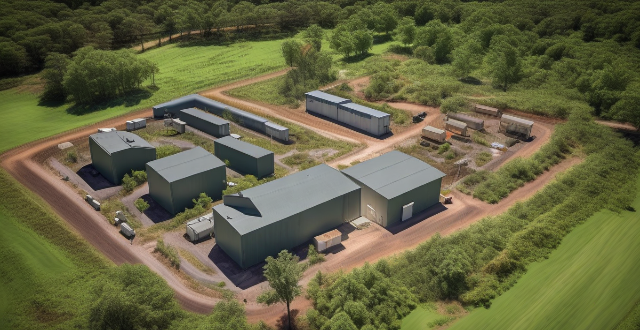Climate plays a crucial role in determining the type, choice, and efficiency of energy storage systems. Variations in temperature, humidity, and other environmental factors can significantly impact the performance and longevity of these solutions. For instance, high temperatures can cause battery degradation and reduce their lifespan, while low temperatures can decrease the battery's capacity and output power. High humidity can cause corrosion and damage to the battery's components, reducing its lifespan and efficiency. Similarly, climate change can affect the availability of water for pumped hydro storage systems, and higher temperatures can increase evaporation rates, reducing the amount of water available for energy storage. Therefore, it is essential to consider the local climate conditions when selecting and designing energy storage systems to maximize their performance and longevity.

How Different Climates Affect the Choice and Efficiency of Energy Storage Systems
Climate plays a significant role in determining the type, choice, and efficiency of energy storage systems. The variations in temperature, humidity, and other environmental factors can impact the performance and longevity of energy storage solutions. Let's delve into the details:
Impact on Battery Performance
Temperature
- High Temperatures: High temperatures can cause battery degradation and reduce their lifespan. They can also lead to thermal runaway, a condition where the battery's internal temperature increases uncontrollably, leading to its destruction.
- Low Temperatures: Low temperatures can decrease the battery's capacity and output power. This is because the chemical reactions that generate electricity slow down in cold conditions.
Humidity
- High Humidity: High humidity can cause corrosion and damage to the battery's components, reducing its lifespan and efficiency. It can also lead to the formation of dendrites, which are tiny, needle-like structures that can short-circuit the battery.
- Low Humidity: Low humidity can cause the battery to dry out, reducing its efficiency and lifespan.
Impact on Other Energy Storage Systems
Pumped Hydro Storage
- Climate Change: Climate change can affect the availability of water for pumped hydro storage systems. Droughts or changes in precipitation patterns can reduce the amount of water available for energy storage.
- Temperature: Higher temperatures can increase evaporation rates, reducing the amount of water available for energy storage.
Compressed Air Energy Storage (CAES)
- Temperature: The efficiency of CAES systems is affected by temperature. Higher temperatures can reduce the energy density of the stored air, reducing the system's efficiency.
- Humidity: High humidity can cause moisture to accumulate in the storage tanks, reducing the system's efficiency.
Thermal Energy Storage
- Temperature: The efficiency of thermal energy storage systems is directly related to the temperature difference between the storage medium and the environment. In climates with smaller temperature differences, these systems may be less efficient.
- Humidity: High humidity can affect the insulation properties of some thermal energy storage materials, reducing their efficiency.
In conclusion, different climates have a significant impact on the choice and efficiency of energy storage systems. To maximize the performance and longevity of these systems, it's essential to consider the local climate conditions when selecting and designing them.